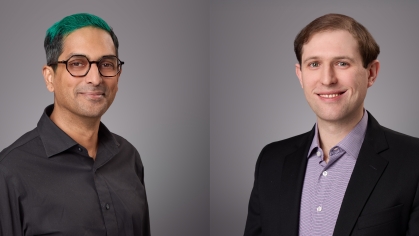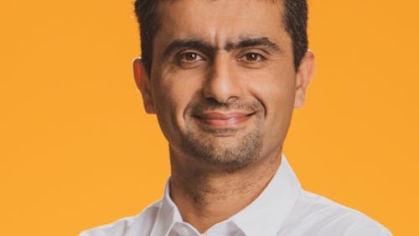ECE Professor Waheed Bajwa Named IEEE Fellow

In naming Waheed Bajwa, a professor in the School of Engineering Department of Electrical and Computer Engineering, a Fellow of the Institute of Electrical and Electronics Engineers (IEEE) the professional society cited his significant “contributions to compressed sensing, communications, and machine learning in distributed systems.”
While Bajwa has been a member of the IEEE since 1998, becoming a Fellow of a leading global organization in the advancement of technology is a highly prestigious recognition and career milestone.
ECE professor and chair Yingying Chen notes that “the IEEE’s well-deserved recognition of Dr. Bajwa’s scholarly contributions is a credit to his dedication as a researcher in exploring and discovering a myriad of elegant solutions to critical and timely problems.”
“Being elevated to IEEE Fellow is both humbling and deeply meaningful,” says Bajwa. “It is surreal to join the ranks of individuals I have long admired, and this recognition validates my work at the intersection of signal processing, machine learning, and statistics, particularly in communications and networked systems.
“While this honor is awarded to me individually, it is truly a collective achievement,” he adds. “I’m deeply grateful to my wife and daughters for their sacrifices, allowing me to dedicate countless hours to research – and to my mentors, collaborators, and students whose contributions have shaped my work.”
Addressing Complex Challenges
According to Bajwa, his recent research focus has shifted to include broader challenges in machine learning and communication systems.
“In particular,” he says, “I’m interested in enabling information extraction from data through provably robust and computationally efficient methods at two extremes – cases with too few observations and those with an overwhelming amount. These challenges are especially relevant in today’s interconnected world, where distributed systems play a crucial role in applications such as the Internet of Things (IoT), federated medical systems, and networked graphics processing units, or GPUs, in data centers.”
Recent collaborative research projects include working with WINLAB colleagues to enable machine learning in edge computing systems for next-generation wireless networks, and with researchers from Rutgers Department of Psychiatry and Brain Health Institute on a personalized psychiatric care project addressing the challenge of small sample sizes in medical studies by integrating tensor algebra and machine learning to develop explainable and better performing models.
“Another key research direction,” he says,” focuses on security in distributed systems, where increased connectivity has introduced both new opportunities and vulnerabilities to malicious actors,” he notes.
For Bajwa, Rutgers has played a foundational role in his success. “It’s been my academic home for nearly 14 years, providing an inspiring environment that has been instrumental to my research and professional growth, making this recognition by IEEE possible.”

